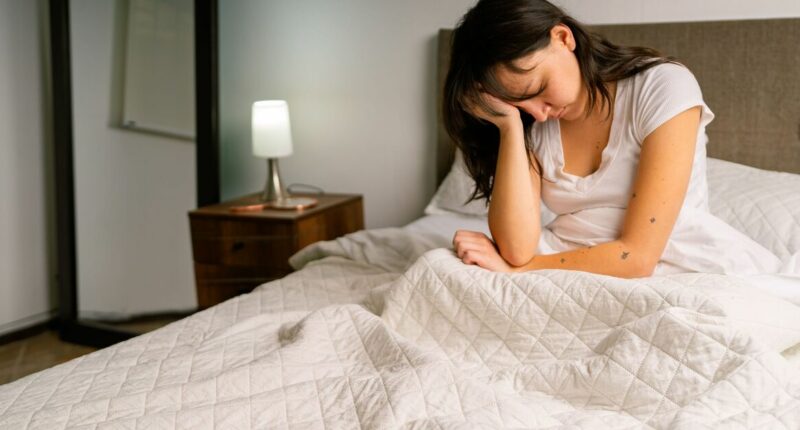Share this @internewscast.com
Craving a snack before bed might seem like a good idea, but according to one sleep expert, indulging in certain foods could disrupt your rest. These three particular types of food might be the culprits behind a bad night’s sleep, so you may want to steer clear of them before turning in for the night.
Rosey Davidson, a renowned sleep consultant and author at Just Chill Baby Sleep, highlights how our dietary choices can significantly impact our sleep quality. While foods rich in the amino acid tryptophan are believed to enhance sleep, the opposite effect is observed with foods high in fat, sugar, or spice.
In an interview with the Mirror, Rosey explained, “The food we consume influences our sleep by affecting our hormones and digestion. Consuming foods packed with tryptophan, magnesium, or melatonin can encourage relaxation and improve sleep quality.”
She continued, “Carbohydrates can help transport tryptophan to the brain, which aids in the production of serotonin and melatonin—two chemicals that help us fall asleep. A balanced dinner consisting of proteins, healthy fats, and carbohydrates can stabilize blood sugar levels, thus minimizing nighttime awakenings.”
Rosey also warned against certain foods in the evening. “Spicy foods might lead to heartburn and discomfort, disrupting sleep. Similarly, meals high in fat or grease can cause indigestion, making it more difficult to drift off. Consuming excessive sugar or caffeine too close to bedtime can overstimulate the body, delaying sleep.”
She added, “Sugary treats can cause blood sugar spikes followed by crashes, potentially waking you up during the night. Moreover, heavy protein meals can slow down digestion, resulting in a more restless sleep experience.”
Rosey is not alone in her views, with numerous other experts echoing these sentiments. For example, in a 2011 study, scientists investigated the relationship between consuming specific foods and sleep patterns among 440 medical students.
Although the odds of a good night’s rest were ‘2.5 times more likely with soybean intake’, negative effects were spotlighted for both papaya and spicy foods.
Meanwhile, another 2016 study also found that adults who sustained diets with more highly saturated fats, sugar and little fibre experienced lighter ‘less restorative sleep’ with more disturbances. Both caffeinated beverages, such as coffee, and alcohol intake have been previously linked to poorer sleep quality, too.
In addition to this, Rosey recognised several foods that may genuinely aid your sleep, although research is still developing on the subject. She continued: “Kiwi has gained attention for its potential to improve sleep quality, but there is little evidence to back it up. The thinking is that kiwi is high in serotonin, a precursor to melatonin, which regulates sleep-wake cycles.
“It is high in antioxidants and folate which may benefit brain function (and therefore support sleep regulation). While the research is still emerging, adding kiwi to an evening snack as part of a balanced diet definitely won’t do any harm.
“Other foods that may improve sleep include cherries, which are naturally high in melatonin, and bananas, which contain magnesium, potassium, and tryptophan to relax muscles and nerves. Oats are another great choice, as they are rich in melatonin and complex carbohydrates, aiding serotonin production.
“Nuts, such as almonds and walnuts, are packed with magnesium and melatonin, while turkey is an excellent source of tryptophan. Chamomile tea is also worth mentioning, as it contains apigenin, an antioxidant that may reduce insomnia and promote relaxation.”
Nonetheless, Rosey stressed that focusing on specific foods as a ‘cure’ for sleep issues is unhelpful. Instead, she recommended a holistic approach that includes ‘healthy eating, consistent sleep routines, physical activity, exposure to light, and emotional wellbeing. ‘
“Ultimately, the best thing we can do for our sleep is focus on an overall healthy and balanced diet, alongside a consistent sleep routine and effective stress management,” she said. “Timing also matters—finishing meals 2-3 hours before bedtime, avoiding heavy meals late at night, and creating a calming bedtime routine can make a significant difference.
“By prioritising these things, we can improve our sleep quality and overall health without needing to rely on specific ‘miracle’ foods.”












